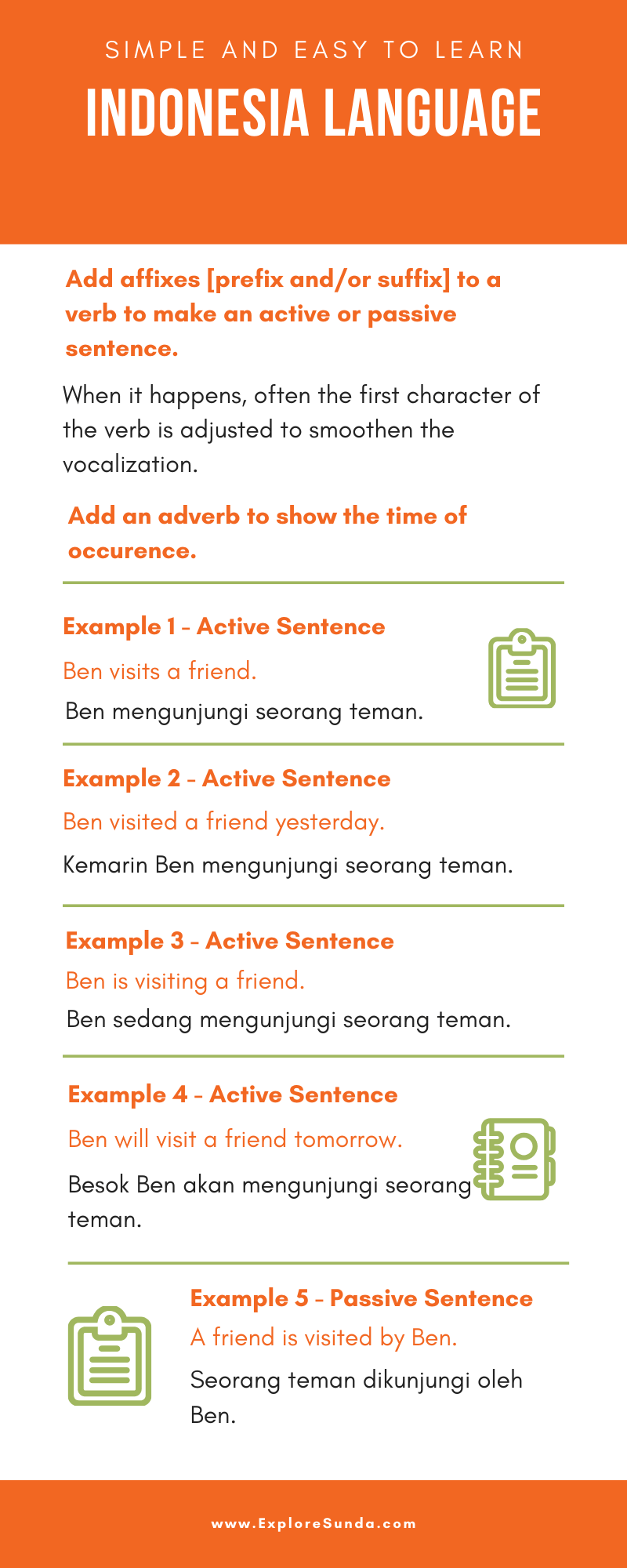- Sunda
- Travel Indonesia
- Indonesia Language
Indonesia Language is Bahasa Indonesia
It is Simple and Easy to Learn
The official language in Indonesia is Bahasa Indonesia or Indonesia language. Many foreigners call it Bahasa, although bahasa means language. Hence, correctly speaking it should be Bahasa Indonesia.
Since Indonesia is an archipelago, each area develops their own local language. We have hundreds of local language across Indonesia. For example, if you explore Sunda, you will meet many Sundanese, who speaks basa Sunda (Sundanese language). When you travel to the Central and East Java, the locals speak Javanese language. But, if you travel Indonesia, don’t worry about that, you will survive even if you only know little bits of Indonesian words, because most of us can speak Indonesia language fluently.
Introduction to Indonesia Language
Indonesia language is a very simple language. For example, unlike English, it doesn’t have past tense, past perfect, present tense, future tense, etc. Hence, its verb never changes to reflect past, present or future time. We simply add an adverb to show the time of occurrence in any sentence.
We change the verb by adding affixes, either a prefix in the beginning or a suffix at the end of the verb. Often we add both prefix and suffix simultaneously. When we add a prefix, most of the time the first character of the verb is adjusted to smoothen the vocalization.
Look at example one to four, the original verb is "kunjung" (to visit), then we add a prefix "me-" and suffix "-i", so they become active sentences. Next, the first alphabet in the verb is changed to smoothen the word so it becomes mengunjungi instead of mekunjungi.
The prefix also differentiates active and passive sentence. We use prefix me- to create an active sentence, on the other hand we use prefix di- to create a passive sentence, as shown by example five.
The pronunciation of Bahasa Indonesia is also easy. Alphabetically, it is similar to German, except we don’t have any umlauts. Therefore, when you read something in Indonesian language, just read what is written. It is very likely you pronounce it correctly, although you don’t know what it means. This is true for grammatically correct Indonesian language. In practice, there are so many slang in Bahasa Indonesia. Indonesian tend to mix their mother tongue and local dialects when they speak. Hence, you might find it difficult to hear what they are saying.
Are you interested in learning Indonesia language? The key is to learn and familiarize yourself with lots of vocabulary. If you know lots of Indonesian words, then all you have to do is assemble them into a simple sentence containing subject, verb and object without worrying how to create past tense, past perfect tense, etc. Here are the examples on how to say in Indonesia.
Having familiarized yourself with Indonesia language, are you ready to explore Indonesia? Let's start with the land of Sunda, where exotic tropical beaches, gorgeous highlands and stunning cities awaits you :)
Recent Articles
-
Roro Jonggrang: A Tale Etched in the Stones of Prambanan Temple
Nov 05, 25 11:52 PM
Unravel the ancient Javanese legend of Roro Jonggrang that bridges myth, devotion, and the grandeur of Prambanan. -
Discover the Vibrant Celebration of Imlek in Indonesia!
Jan 13, 25 03:24 AM
The Chinese New Year of 2576 will be celebrated on January 29, 2025. Discover the special things in this Imlek festival! -
The Site Map of ExploreSunda.com
Nov 26, 24 10:40 PM
A thorough site map to help you browse through the Explore Sunda site.




![Get to know the Indonesia currency, Rupiah [IDR]. What is the exchange rate, where to exchange it, and how much do you need to travel Indonesia?](/images/Indonesia-currency-pinterest.png)





